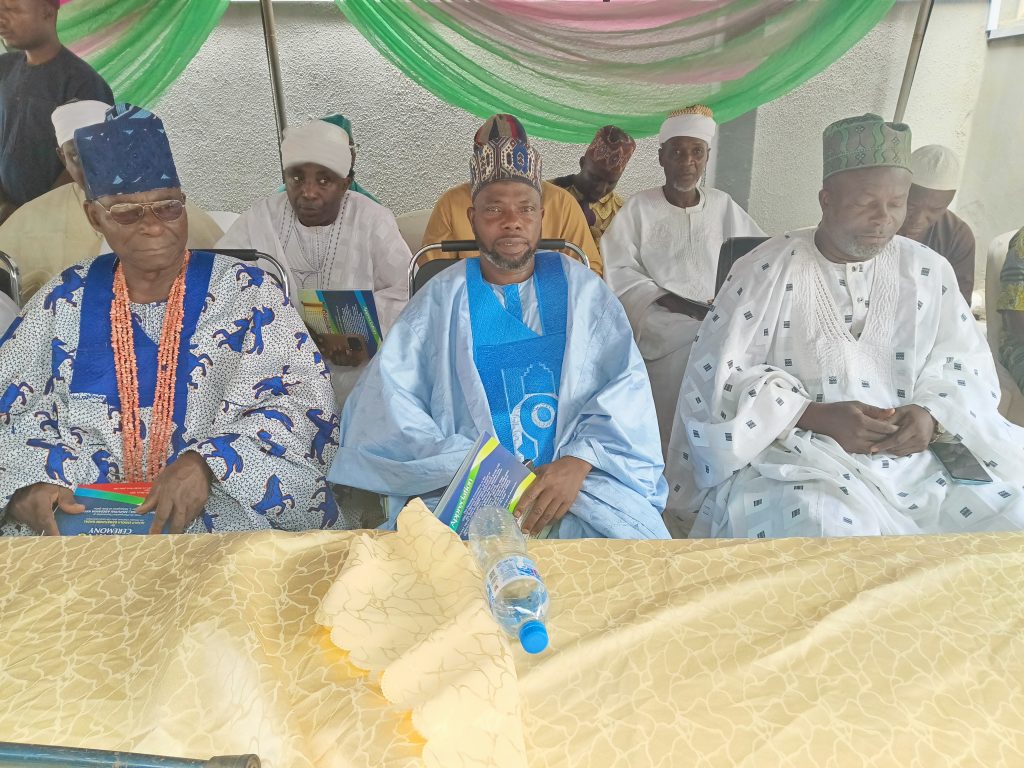… First Islamic Microfinance Bank In South West Commissioned
Daud Olatunji
A Professor of Insurance and Risk Management at the University of Lagos (UNILAG), Tajudeen Olalekan Yusuf, has called for the need for diverse financial approaches aligned with the Sustainable Development Goals (SDGs).
The expert in Insurance shared a visionary perspective on financial inclusion, pointing out that the conventional system’s features hinder financial inclusion, whereas non-interest finance embraces diversity, serving as a viable alternative.
Speaking as a guest lecturer at the Commissioning of Hayat Trust Non-Interest Microfinance Bank held in Ijebu-Ode,Prof. Tajudeen Yusuf of the University of Lagos, highlighted the tenacious encouragement of Islamic finance by the United Nations, underscoring its role in achieving the SDGs by 2030.
He said that the inclusivity fosters healthy competition and addresses Nigeria’s current challenge of limited productivity due to reliance on conventional spending.
Reflecting on the impact of non-interest finance during challenging times, Prof. Yusuf referenced a period when the country faced financial constraints, and infrastructure projects thrived due to innovative financial approaches.
He urged Nigerians to rally round non-interest finance, advocating patronage, propagation, and encouragement.
Addressing potential religious divides, Prof. Yusuf emphasized that non-interest finance transcends religious boundaries, benefiting both Muslims and Christians.
“For financial inclusion, I have persuaded the World Bank to consider models beyond the Western conventional ones to drive financial inclusions.
“When you examine the SDGs (Sustainable Development Goals) of the United Nations, they steadfastly promote the growth of Islamic finance. If the SDGs, set for delivery by 2030, are to be realized, it will necessitate the inclusion of more people.
“Our conventional system, due to its features, does not encourage financial inclusion. Non-interest finance, however, embraces all and provides a better alternative.
“This fosters competition, allowing people to have options rather than being pushed in one direction.
“ It welcomes more participants, focusing on the formal sector to encourage real productivity, addressing a problem Nigeria faces today—a result of reliance on conventional project spending.
“As seen when former Minister of Power, Works and Housing ,Babatunde Fashola took office, there was a financial crunch, and the country’s revenue income was dwindling.
“Many infrastructure projects achieved success through non-interest finance, and the current administration continues in the same direction.
“Therefore, non-interest finance is here to stay, and we all must support it by patronizing, propagating, and encouraging people.
“ It does not discriminate; the crucial decision truly matters for what Nigeria as a country and its religiously diverse society need.
“ Muslims and Islam are ready to embrace this path, promoting unity among all Nigerians, regardless of religious affiliations.
“Cooperation is vital, as we all share the same market. Whether the outcome is favourable or not, we all experience it together. This is the essence of my message.
“Indeed, some states like Anambra are already implementing non-interest finance.
“During the governor of Anambra state , Prof. Charles Soludo’s tenure as the Central Bank governor, he propagated Islamic finance, laying a solid foundation.
“Even when the military introduced it, Soludo ensured its continuity, and former Emir of Kano State Lamido Sanusi further worked on it when he took over as CBN Governor.”
Do you want to share a story with us? Do you want to advertise with us? Do you need publicity for a product, service, or event? Contact us on WhatsApp +2348183319097 Email: platformtimes@gmail.com
We are committed to impactful investigative journalism for human interest and social justice. Your donation will help us tell more stories. Kindly donate any amount HERE




